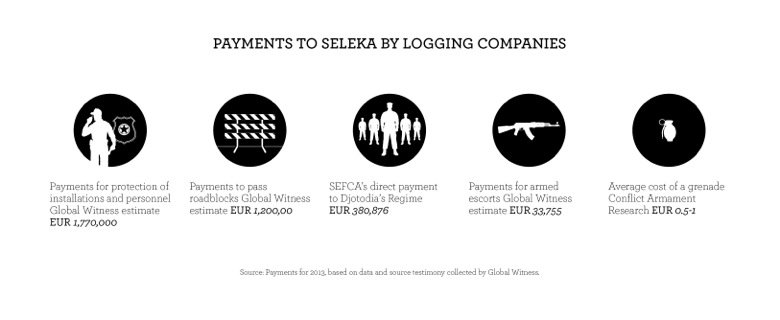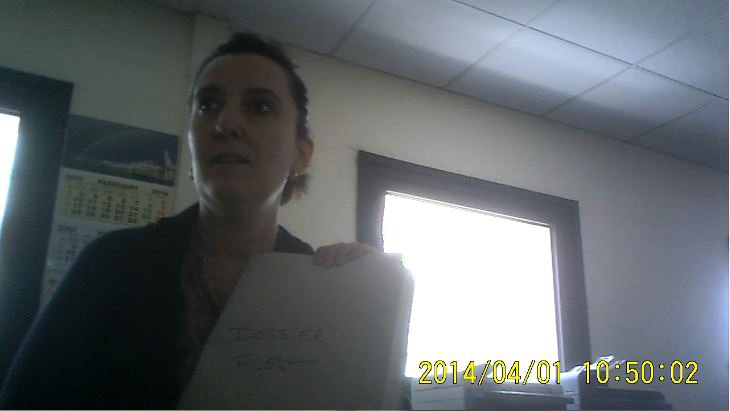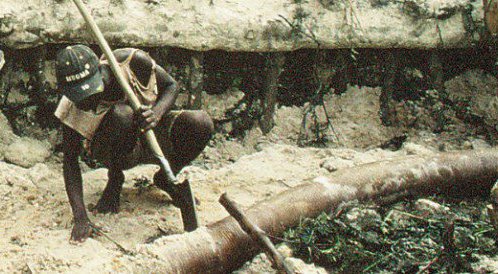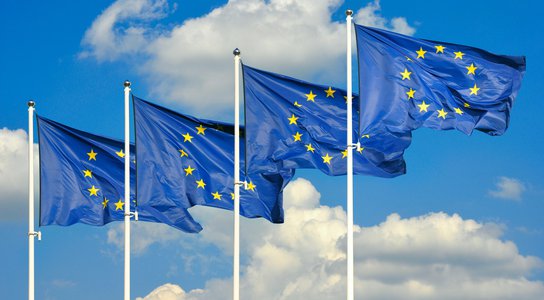Urgent action required to cut trade and aid ties to logging companies that have paid millions to militia guilty of mass murder and war crimes.
In 2013, the Central African Republic was plunged into a conflict that has cost over 5,000 lives and displaced more than a million people.
When the insurgent group Seleka seized power in a bloody coup d’état, Seleka rebels were dispatched to the country’s rainforests. Here they struck lucrative deals with logging companies that helped bankroll a fierce campaign of violence against the country’s population.
Our new investigation, Blood Timber, reveals how these logging companies have paid millions of euros into the hands of rebels guilty of mass murder, kidnappings, rapes and the forced recruitment of child soldiers.
Watch highlights from our undercover investigation below.
Global Witness is calling on the
EU and its member states to cut all trade and aid links to CAR’s logging
industry, which continues to be a source of instability as the African country
struggles to restore peace.
Europe is complicit on three counts:
- Trade: European companies are trading with CAR logging
companies, which in 2013 alone paid over 3.4 million euros to rebels so
that they could continue logging illegally, at scale and for significant
profit.
- Illegal
imports: Europe is the premier
destination for CAR wood, meaning EU member states are failing in their legal
obligations to keep illicit timber off European markets.
- Donor aid: France has paid millions of euros in development aid to CAR’s logging companies, based on the flawed assumption that CAR’s logging industry contributes to local development. The EU is also pursuing a timber trade agreement with CAR that further benefits its logging industry.
The logging companies under investigation – IFB from France, SEFCA from Lebanon, and Vicwood from China – preside over an area of CAR rainforest over two hundred times the size of Paris, and together account for 99% of timber exports from the country.
Global Witness investigations found that all three made frequent payments to Seleka rebels – as bribes, to pass roadblocks, for armed escort, and for the protection of their logging sites, including a single transaction of nearly 381,000 euros by SEFCA to the new Seleka government right after the coup.
This
has done little to deter foreign trade. During the conflict, timber has
overtaken diamonds as CAR’s number one export and is streaming into Europe
illegally. CAR’s biggest trader, France’s Tropica-Bois, registered record
profits in 2013, up 247% from 2010. The company is half-owned by CAR’s biggest loggers
SEFCA.

"It’s Africa. [War] is so common we don’t really pay attention…It’s not a war where they attack white people. It’s not a war we have to avoid." A Tropica-Bois representative interviewed by Global Witness undercover investigators expressed her indifference to war-time trading. She was unaware that she was being filmed.
Seleka was ousted from power in 2014 and a transitional government installed, but logging companies now make routine payments to another armed group, the Anti-Balaka.
It is tragically ironic that while European governments invested hundreds of millions of euros in military and peacekeeping operations in CAR, those same governments have failed to keep conflict timber off EU markets. Until Europe ends its support of CAR’s logging industry EU consumers may be unwittingly fuelling a conflict that their own armies were sent to stop. - Alexandra Pardal - Campaign Leader, Global Witness
SEFCA responded to Global Witness allegations with claims
that its timber is legal and that it is a victim itself as it lost several
vehicles in the upheavals. The company claims that it hosted the Seleka
regime’s forces as well as international peacekeepers on its facilities for
security reasons only. Vicwood also claims that its timber is legal and that it
only paid fees at normal government checkpoints. Tropica-Bois denies that the
timber they trade, harvested by SEFCA, is illegal.
Read Global Witness’ recommendations here.


